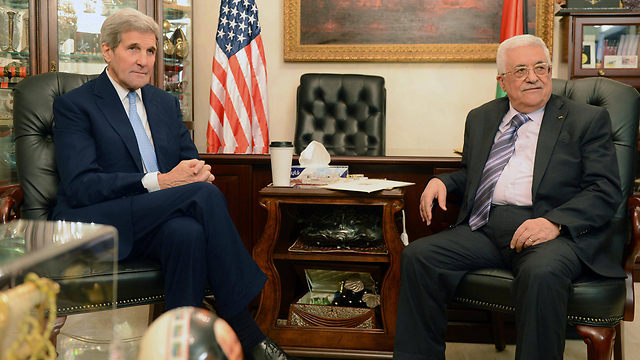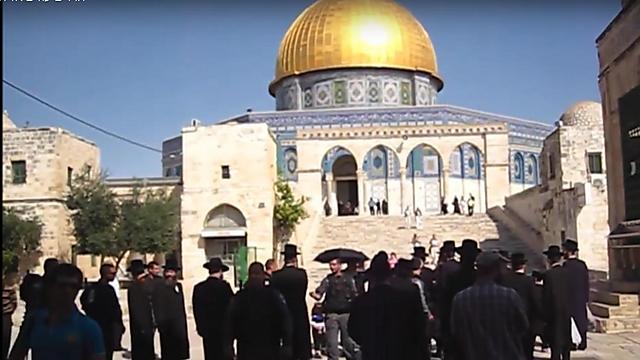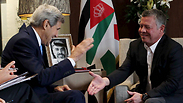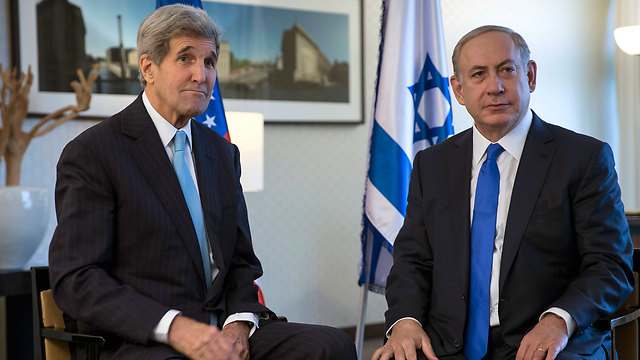
Temple Mount agreement won’t lead to immediate calm
Analysis: The understandings reached between US Secretary of State Kerry, Prime Minister Netanyahu and King Abdullah in Jordan could definitely contribute to a change in atmosphere, but their actual impact on the wave of terror will only be seen later this week.
The wave of stabbings, vehicular attacks and Molotov cocktails is now being fed by the panic and fear which are disrupting life in Israel and serving as an incentive for young Palestinians who are incited on the social networks. It is also being fed by the narrative of the alleged "executions" of the stabbers, which has become deeply rooted among the Palestinian public, and by the wild incitement from Hamas and the Palestinian Islamic Jihad.
Kerry's statement should also be kept in perspective: The understandings were not presented as a written agreement, but as a statement made by Kerry the mediator. This means that they are less binding diplomatically and in terms of international law and, more importantly, each side can interpret them differently.
For that reason, Kerry's statement was also worded in vague terms rather than specific legal terms. We should also pay attention to the fact that Kerry presented the understandings on the Temple Mount as agreements between King Abdullah and Prime Minister Netanyahu. Abbas is not part of these agreements, so they do not bind him, although it’s likely that the Jordanians got Netanyahu to make a small concession towards Abbas.
If the Palestinian claim that Netanyahu has pledged not to execute any new building plans in the settlements is true, we are talking about a tiny concession on Netanyahu's part which is insufficient as far as Abbas is concerned. The Palestinian president left the meeting in Amman without the commission of inquiry he requested for the Temple Mount events, and without a demand that Israel would agree to the status quo from before 2000. As part of that status quo, Israel's security forces did not enter the Temple Mount and the age of worshippers was not restricted.
Who benefitted from the understandings? Kerry, who can go back home with a diplomatic achievement and proof that the United States is still influential and serves as an important factor in the Middle East; Jordan's king, who is perceived as a responsible adult in the international arena and, at the same time, as the real and main defender of Al-Aqsa in the Muslim and Arab arena, while gaining points in his favor in Washington; and Netanyahu, as Israel reached a Jordanian-initiated decision to install cameras on the Temple Mount in cooperation with Jordan. These cameras will undoubtedly help Israel confute the false narrative that "Al-Aqsa is in danger."
In addition, Israel is not required to return to the status quo which was valid until 2000, as demanded by Abbas. In other words, Israeli security forces will be able to impose order on the Temple Mount whenever the Jewish worshippers in the Western Wall below it are in danger, and will be able to restrict the age of worshippers in the mosques according to the security situation.
Kerry's understandings also remove the French proposal to station international observers on the Temple Mount from the table, and that is another achievement Netanyahu can take credit for.
The provocations of radical elements among the Judea and Samaria settlers during the current olive picking season are adding fuel to the fire and evoking feelings of rage and helplessness among the Palestinians. The security forces should take notice of this matter. While they are allotting forces to handle Jewish rioters, it's not enough. The Jewish rioters could reignite the fire of stabbings and vehicular attacks which is beginning to die down. The State of Israel must not let them drag us all into a new escalation.

Netanyahu knows, however, that one section in the US secretary of state's announcement could lead to a conflict with the radical religious right: The public commitment that non-Muslims, in other words Jews, will not be allowed to pray on the Temple Mount, will challenge all people and organizations that have made it their goal to restore the days of the Temple on the Temple Mount.
This matter should be taken seriously, as there have already been attempts by Jewish terrorists to target the Muslim mosques on the Temple Mount in order to destroy them and rebuild the Temple in their place. There have also been Israeli politicians, like Minister Uri Ariel for example, who prayed there in order to irritate.
The verbal agreement reached in Jordan on Saturday basically reinforces the custom announced by then-Defense Minister Moshe Dayan, immediately after the Temple Mount and Western Wall were liberated in 1967. It's safe to assume, therefore, that if Israeli politicians won’t try to challenge the agreement, the Jordanian king will be committed to support Israel's claims from now on. He has already reinforced the Waqf people operating on his behalf in the mosque area on the Temple Mount.
In conclusion, this a good agreement for Israel, but it's too early to see is as the act which will end the "Facebook intifada." The current wave of terror has its own momentum, the winds in Jerusalem have began to calm down and the riots in the territories have been reduced.
So if no particularly violent incident takes place in the coming days, it's safe to assume that the wave of terror will die down. The coming weekend will likely indicate where this wave is headed to.



















